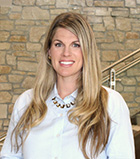
Our family’s dairy farm was in central Florida. It was ravaged by hurricanes and tornadoes more than once. We lost cattle, barns, and more. So, the news around the recent activity of hurricanes Helene and Milton brought back memories and feelings I would prefer were left in the rearview. Photos of a friend’s dairy in Georgia with trees and barns down and cows pinned after the storms were all too familiar. While I was grateful that I did not have to worry about family members milking cows through the storms like they had in years past, I did feel guilty that I couldn’t be there for those who needed help cleaning up the messes the storms left.
While I was following storm news, I ran across a trending article about a farm in central Florida. A couple was declaring they were staying on their farm during Hurricane Milton because “these animals are our children.” They have chickens, cattle, goats, donkeys, and more. They gained national attention after a post on TikTok about their decision, and People magazine decided to interview and publish an article about them. Other news outlets soon followed with further coverage and updates.
These folks have a hobby farm that is funded by their off-the-farm business pursuits and donations. Not having to worry about your farm being the source of your income and instead just loving on your livestock is dreamy, yes, but it is not most farmers’ reality.
I absolutely love that I have taken naps on my cows at the fair. I know how silky a newborn calf feels or that funny sandpaper feeling of a cow’s tongue. I have cried every time I lost an animal or something went wrong. Some were like my pets, and all were my family’s livelihood. We stayed on the farm during storms because there was no alternative. My parents did it for their children’s future.
The fact that social and mainstream media outlets made this hobby farm, which had no damage besides a few downed trees, go viral while families who rely on their farms for their livelihood were seriously suffering stung. Both types of operations care for their animals, but they are not the same. The hobby farm projects a romanticized view of farming that few are privileged to enjoy. I am not mad at the hobby farmer; I would probably also farm for fun if I had surplus income! I am just disappointed that media furthers the disconnect between the two and that much of our general population views them as the same, which distorts reality.
There is no easy answer to this situation. Dairy farming is not sexy. In fact, it is quite the opposite. Dirty boots and soiled jeans are not a good source of “likes.” I get it. It’s not the same, so please do not mislead anyone into thinking it is.

The author grew up on a Florida dairy farm, obtained a bachelor’s degree in chemical engineering from the University of South Florida and has spent her career in dairy processing. She now serves as business development manager for North America with Bunge. Erin and her husband live in St. Louis, Mo., with their three children. Her personal mantra is “Be Bold.”








